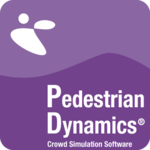Description

FieldView

InSilicoTrials
Comprehensive Overview: FieldView vs InSilicoTrials
FieldView and InSilicoTrials are both technology platforms serving key functions in their respective industries, yet they target different markets and offer unique features that address specific industry needs.
FieldView
a) Primary Functions and Target Markets:
FieldView is a digital agriculture platform developed by Climate Corporation, which is part of Bayer AG. It is designed to help farmers maximize productivity and efficiency through data-driven decision-making.
-
Primary Functions:
- Data Collection and Analysis: FieldView allows farmers to collect and analyze data from their fields and equipment. This includes insights on soil, weather, and crop health.
- Precision Agriculture: It enables precision farming techniques by providing insights that lead to more informed planting, application, and harvesting decisions.
- Field Monitoring and Visualization: Farmers can monitor field conditions in real-time and visualize yield variability.
- Integration: FieldView integrates with various agricultural equipment, syncing data seamlessly for a comprehensive farm management experience.
-
Target Markets:
- Primarily targets the agricultural sector, with a focus on individual farmers, farming cooperatives, and agribusinesses globally.
b) Market Share and User Base:
FieldView is a prominent player in the digital agriculture sector, particularly in North America. Bayer's extensive reach and marketing capability have helped FieldView to capture a significant share of the precision agriculture market. Its user base ranges from smallholder farmers to large-scale agribusinesses, with a significant presence in the United States, Canada, South America, and parts of Europe.
c) Key Differentiating Factors:
- Integration with major agricultural equipment manufacturers allows seamless data transfer and accessibility.
- Backed by Bayer, FieldView benefits from substantial resources and research capabilities, enhancing its product development and market penetration.
- Emphasis on user-friendly tools that cater to both tech-savvy and traditional farmers.
InSilicoTrials
a) Primary Functions and Target Markets:
InSilicoTrials is a healthcare technology platform that provides computational modeling and simulation for drug development and medical device testing.
-
Primary Functions:
- In Silico Simulation: It offers tools for simulating drug interactions and biological processes to accelerate research and development.
- Regulatory Support: The platform provides simulations that support regulation submissions, potentially reducing the need for physical trials.
- Cost and Time Efficiency: Aims to reduce the cost and duration of pre-clinical testing stages through virtual trials.
- Collaboration Platform: Facilitates collaboration among researchers and companies by providing a shared space for data and modeling.
-
Target Markets:
- Primarily targets pharmaceutical companies, biotech firms, research institutions, and medical device manufacturers seeking to innovate R&D processes.
b) Market Share and User Base:
InSilicoTrials operates in the evolving computational biology and virtual clinical trial market. Its market share is growing as more companies recognize the value of in silico methods for efficiency and cost-saving. The user base includes leading pharmaceutical and biotech firms as well as academic researchers globally, though its market is more niche compared to broad-scale platforms like FieldView.
c) Key Differentiating Factors:
- Strong focus on regulatory compliance and providing tools that align with FDA and EMA standards.
- Enables a significant reduction of time and resources in the drug development process by offering validated simulation models.
- Collaboration-centric model that allows multiple stakeholders to access and utilize simulations for more integrative R&D efforts.
Conclusion
FieldView and InSilicoTrials serve distinct markets—agriculture and healthcare—and offer specialized technology solutions that cater to their respective sectors. FieldView’s strength lies in its comprehensive farm management capabilities and integration with physical farming equipment, making it highly practical for precision agriculture. In contrast, InSilicoTrials focuses on accelerating R&D in healthcare through innovative simulation technologies, offering a transformative approach to drug and device development in line with regulatory standards.
Contact Info

Year founded :
Not Available
Not Available
Not Available
Not Available
Not Available

Year founded :
2016
Not Available
Not Available
United States
http://www.linkedin.com/company/insilicotrials
Feature Similarity Breakdown: FieldView, InSilicoTrials
To provide a feature similarity breakdown for FieldView and InSilicoTrials, we need to consider the core functionalities, user interfaces, and unique features of each product. Both are specialized platforms, with FieldView focusing on precision agriculture and digital farming, while InSilicoTrials is centered around healthcare and pharmaceutical simulations. Below is a comparative analysis.
a) Core Features in Common
-
Data Analytics and Visualization:
- Both FieldView and InSilicoTrials have robust data analytics capabilities, providing users with insights derived from collected data to support decision-making.
-
Cloud-Based Platforms:
- Both platforms operate in the cloud, allowing for seamless data integration, storage, and access from multiple devices.
-
Simulation Capabilities:
- While the focus is different (agronomic vs. healthcare), both platforms offer simulation capabilities to predict outcomes based on various input scenarios.
-
User-Focused Tools:
- Each provides user-centric tools designed to enhance the specific tasks within their respective industries—whether it’s crop management or drug modeling.
b) User Interface Comparison
-
FieldView:
- Designed with farmers and agronomists in mind, FieldView offers a straightforward, map-based interface that allows users to monitor and manage fields in real time.
- It emphasizes intuitive navigation with easy access to features like yield analysis, crop health monitoring, and weather forecasting.
-
InSilicoTrials:
- InSilicoTrials caters to professionals in the pharmaceutical and healthcare industries, offering a more technical interface that supports complex modeling and simulations.
- It provides a more data-heavy display, with an emphasis on graphical presentations of drug and treatment simulations, accommodating the need for detailed and precise data interpretation.
c) Unique Features
-
FieldView Unique Features:
- Field Health Imagery: Utilizes satellite imagery to provide near-real-time health assessments of crop fields.
- Precision Planting Technology: Integrates with on-farm equipment to allow detailed planting adjustments based on data insights.
-
InSilicoTrials Unique Features:
- Regulatory Compliance Simulation: Offers specific tools designed to help pharmaceutical companies simulate compliance with regulatory standards, a crucial feature for drug development.
- Tailored Healthcare Modeling: Provides customized simulation models that can be adapted for specific therapeutic areas or patient demographics.
Summary
Although FieldView and InSilicoTrials share some technological foundations such as analytics and cloud services, they are tailored for distinct industries with unique user needs. FieldView excels in real-time agricultural monitoring and management, while InSilicoTrials is geared towards complex simulations for drug development and healthcare solutions. Each product's unique offerings make them leaders in their respective fields, tailored specifically to the demands and nuances of agriculture and healthcare industries.
Features

Not Available

Not Available
Best Fit Use Cases: FieldView, InSilicoTrials
a) FieldView Best Fit Use Cases
FieldView is primarily a digital agriculture platform developed by The Climate Corporation. It focuses on helping farmers and agricultural businesses optimize their operations through data-driven insights. Here are some scenarios and types of businesses where FieldView is the best choice:
-
Crop Farmers: FieldView is ideal for farmers who manage large-scale crop production, such as corn, soybeans, and wheat. Its tools help analyze yield, track field variability, and fine-tune inputs like seeds and fertilizers.
-
Agribusinesses: Companies involved in agribusiness can benefit from FieldView’s comprehensive data analytics to improve productivity and operational efficiency. It is ideal for businesses looking to leverage precision agriculture.
-
Research Projects: Agricultural research projects focusing on crop yield optimization, climate impact assessments, and sustainable farming practices can use FieldView to gather extensive field data and test hypotheses.
-
Supply Chain Optimization Projects: Businesses aiming to optimize supply chain operations, like logistics and inventory management in the agriculture sector, can utilize FieldView’s data for better decision-making.
b) InSilicoTrials Preferred Use Cases
InSilicoTrials is a digital platform focusing on the use of simulation models for healthcare and pharmaceutical industries. It helps streamline R&D processes and regulatory approvals. Here are the use cases where InSilicoTrials is preferable:
-
Pharmaceutical Companies: Firms involved in drug discovery and development can leverage InSilicoTrials to simulate biological interactions and predict clinical outcomes. This reduces the need for extensive physical testing.
-
Medical Device Manufacturers: Companies producing medical devices can utilize simulation tools for stress testing, predicting device performance, and ensuring compliance with regulatory standards.
-
Healthcare Research Institutions: Organizations engaged in clinical research and biomedical studies can use InSilicoTrials to model diseases and treatment efficacy.
-
Regulatory Compliance Projects: Projects focused on meeting stringent healthcare and pharmaceutical industry regulations can benefit from InSilicoTrials by using its validated models to streamline the approvals process.
c) Industry Verticals and Company Sizes
-
FieldView: Primarily serves the agriculture vertical, catering to both small-scale independent farms and large agribusiness corporations. Its scalability and modular offerings make it accessible to various company sizes, aiming to make precision farming tools available even to smaller operators who wish to modernize their practices.
-
InSilicoTrials: Targets the healthcare and pharmaceutical verticals. It serves a wide range of company sizes, from startups focused on biotech innovations to large pharmaceutical corporations seeking to enhance their R&D processes. Its flexible, cloud-based approach makes it suitable for both smaller labs needing cost-effective solutions and larger companies looking for comprehensive simulation capabilities.
In conclusion, while FieldView and InSilicoTrials serve different industries, they share a common goal of leveraging digital tools and data analytics to optimize and modernize processes within their respective fields. FieldView focuses on agriculture with a wide application range for various farm sizes, whereas InSilicoTrials is optimal for the healthcare and pharmaceutical sectors, helping in reducing costs and time in R&D through simulation.
Pricing

Pricing Not Available

Pricing Not Available
Metrics History
Metrics History
Comparing teamSize across companies
Conclusion & Final Verdict: FieldView vs InSilicoTrials
To conclude and provide a final verdict on FieldView and InSilicoTrials, let's address each of the specified points:
a) Best Overall Value:
FieldView and InSilicoTrials serve different niches within their respective industries, with FieldView focusing on precision agriculture and InSilicoTrials specializing in healthcare simulation and drug development. Thus, the determination of the best overall value depends largely on the needs of the users:
-
FieldView offers exceptional value for stakeholders in the agricultural sector needing advanced data analytics and insights to enhance crop yields, optimize resource use, and improve decision-making processes.
-
InSilicoTrials provides unparalleled value for pharmaceutical companies, researchers, and healthcare providers by offering simulation tools that reduce the need for physical trials, thus accelerating drug development and innovation.
Given these distinctive domains, neither product is inherently better overall; it is context and use-case dependent. In their respective fields, each offers strong value due to tailored functionalities and industry-specific applications.
b) Pros and Cons:
FieldView:
Pros:
- Comprehensive data collection and analysis tools tailored for agriculture's unique challenges.
- Enhances decision-making through predictive analytics and real-time insights.
- User-friendly interface designed for easy integration with existing farming equipment.
Cons:
- High dependency on data accuracy and completeness, which can be a challenge in regions with limited technological infrastructure.
- Costs can be significant for smaller farms without the economies of scale of larger operations.
InSilicoTrials:
Pros:
- Reduces the cost and time associated with drug development by providing virtual trials.
- Strong compliance framework with regulatory insights facilitates smoother market entry.
- Enhances R&D efficiency, allowing for more iterative and exploratory research.
Cons:
- Requires substantial data inputs to ensure the accuracy of simulations, which can be a barrier for under-resourced institutions.
- Potentially steep learning curve for users unfamiliar with simulation software.
c) Recommendations for Users:
Users trying to decide between FieldView and InSilicoTrials should consider the following:
-
Identify Core Needs: Evaluate what specific results and improvements are essential for your operation or research. If you are in agriculture, FieldView is more suited; if in healthcare or pharmaceutical research, InSilicoTrials is the logical choice.
-
Assess Infrastructure and Expertise: Ensure your organization has the required infrastructure (e.g., data collection tools, software compatibility) and expertise (e.g., data analysis skills, simulation proficiency) to maximize the potential of your chosen platform.
-
Budget and ROI Consideration: Perform a cost-benefit analysis to determine the potential return on investment relative to your operational scale or research scope and timeline.
-
Focus on Integration: Consider how each platform will integrate with existing processes. Smooth integration with current systems can enhance productivity and ensure seamless adoption of new tools.
Ultimately, the decision between FieldView and InSilicoTrials should be informed by a thorough analysis of your organization's specific needs, capabilities, and strategic goals. Users must align their choice with the software that most effectively addresses their operational challenges and maximizes their growth potential within their respective fields.
Add to compare
Add similar companies




